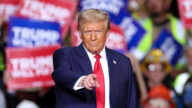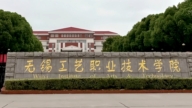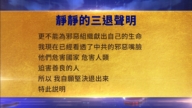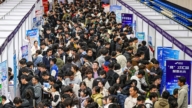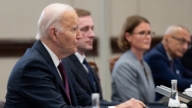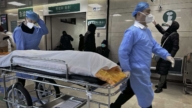【新唐人2012年3月28日讯】中共总理温家宝在今年“两会”的记者招待会上说,随着经济的发展,中国又产生了“分配不公、诚信缺失、贪污腐败”等问题。一时之间,“改革”这个名词开始在各大媒体争相出现,有学者指出,中共政府权力对市场的干预持续恶化,腐败蔓延不止,经济和社会矛盾几乎到了近乎临界点,要想改变经济必须先改变这个社会的权力来源。
财经专栏作家廖仕明表示,任何一个经济体都有三个发动机,第一个发动机就是出口,第二个叫做内需,第三个就是政府公共投资。中国是一个以出口为导向的国家,对外出口占中国经济增长很大部分,在2008年国际经济不景气之后,整个国际对中国的产品需求开始减弱,中共政府近年来开始强调要提升内需。
财经专栏作家廖仕明:“那个货币发行量非常庞大,这个时候它必然导致通货膨胀,我们看到从2010年、2011年到2012年现在,中国在社会上看到的经济情况,一个最表面的现象就是什么东西都涨价。”
在经济减速、国内物价上扬,以及国际市场波动的背景下,中国高居不下的通货膨胀,付出代价的实际上是中国老百姓财富的大幅度缩水。
经济学家简天伦博士:“中国经济改革以来,一直都是保持共产党不倒的前提,做的任何改变,从双轨制、农业转工业、出口、投资、股票上市、房地产等等,这一切都是使一部分人富裕起来,谁富裕起来?就是共产党的头,还有他们的子孙富裕起来。比方说出口,它是以低估汇率来出口,所以,当时,80年代开始,共产党官员的儿子、孙子都跑到出口部门去了,赚了一大笔。”
廖仕明表示,现在的中国是一个权贵资本主义,也就是有权的人和有钱的人,结合成一个紧密的利益共同体,目前中国的政治体制,不管是在法律、在行政、在投资、在具体的措施方面,都是对这群人有利,对于普通的老百姓不利。
财经专栏作家廖仕明:“就是说在目前的中国,普通的老百姓消费减少,是因为收入分配不均造成的,也就是说有人很富、有人很穷,虽然中国的GDP增长很快,看上去百分之八甚至百分之九、百分之十,但是它增长的大部分,在那些有钱的权贵阶层所垄断,他会增加投资,他会拿到国外去,他会买国外的奢侈品,他甚至到国外去买房子,或者是他去炒房价,而对普通的老百姓来讲,他并没有增加多少钱,所以他的消费不可能跟经济有同步。”
简天伦认为,中国如果还继续维持一党专政的话,那么任何的改革,都是使中国贫富差距拉的越来越大,中国现在权力财产化是最严重的,所以要改革的话,只能从政府的腐败这方面改革,才能防止权力财产化。
经济学家简天伦博士:“这次王立军薄熙来这个事件,看出来他们利益集团之间发生矛盾,所以就在狗咬狗了,在这样个情况之下,他们想掩盖也掩盖不住了,如果他们不改的话,那只有等老百姓来推翻这个政府了,所以我觉得胡温他们要明智一点的话呢,赶快把共产党的体制抛弃掉。”
网友发表文章指出,军警已被器化,刑诉法73条已通过,连律师也要宣誓拥护党了。“维稳”已经维到满街军警荷枪实弹、盘查行人的程度,这轮改革“深化”的天机何在?这种一言堂的“改革”也叫改革吗?这种公权力缺失下的改革是值得支持和期待的吗?
采访/常春 编辑/黄容 后制/萧宇
———————
The Reform of China Needs to Start from Its Govenment
CCP Premier Wen Jiabao commented in a “two sessions”
press conference this year.
With economic development, China encountered problems,
such as unfair distribution, lack of credibility, corruption etc.
All of a sudden, the term “reform”
appeared in the major media.
Some scholars pointed out that the CCP conducts
an intervention-mad policy on market.
The economic and social contradictions are almost near
critical point, with corruption spreadingacross the country.
Therefore, economic reform must go after the power source
changes. Liao Shiming, a financial columnist said that there are three
engines for any economy.
The first is export, the second is domestic demand,
and the third is public investment.
China is an export-oriented country, which means exports
account for a large part of China’s economic growth.
After the international economic downturn in 2008,
the international demand on Chinese products weakened.
Therefore, the CCP began to emphasize enhancing
domestic demand in recent years.
Financial columnist Liao Shiming: “The volume of currency
issued is very large, and it will inevitably lead to inflation.
So everything was been marked up since 2010.
That’s what we see in China now.”
With the economy slowing down, domestic prices are rising,
as well as international markets fluctuating.
High inflation in China leads to Chinese’wealth shrinking.
Dr. Jian Tianlun, an economist commented: “A premise
for China’s economic reform is maintaining CCP power.
Every change in China, including two-track system,
agriculture/industry transferring, exports, investments, stock market, real estate, etc, gets some people rich.
But who are these people? They are CCP leaders
and their relatives.
For example, exports are based on undervalued
exchange rates in the1980s.
At that time, many CCP leaders’ children joined
the export sector and made money.”
Liao Shiming said that China belongs to crony capitalism.
People with wealth and power combine to form
a new group of interests.
China’s political system, whether legal, administration,
investment, or specific measures are beneficial for these people, but not for common people.
Financial columnist Liao Shiming: “Common people in China
spend less due to unfair distribution,
so some people get very rich, while others get very poor.
Although China’s GDP has grown rapidly in 8%, 9%
or even 10%.
Most of the increasing part is monopolized
by the powerful class.
The powerful people may increase investment, directly
invest to foreign countries and buy luxury goods.
They may even go abroad to buy real estate properties.
However, there is little wealth increasing for common people,
so the common peoples consumption cannot go up with the economy increasing.”
Jian Tianlun said that if the one-party dictatorship continues
in China, then any reform will just enlarge the wealth gap.
The most serious problem in China is power-monetization.
Therefore, the reform must go against corruption
to stop power-monetization.
Dr. Jian Tianlun, an economist: “The Wang Lijun event
shows the conflict in interest groups.
It just likes a dogfight and it cannot be hidden anymore.
If the CCP makes no change, Chinese people
will overthrow it.
I think Hu and Wen should the abandon CCP,
this is the smart way.” Netizens published articles on the internet highlighting
the military and police becoming CCP tools.
73 of the Criminal Procedure Laws were passed,
and even lawyers have to swear an oath to the CCP.
Stability maintenance policy brings armed soldiers
and police everywhere on the street.
Where is the reform? Is the public authority losing reform
worthy of supporting and looking to the future?




